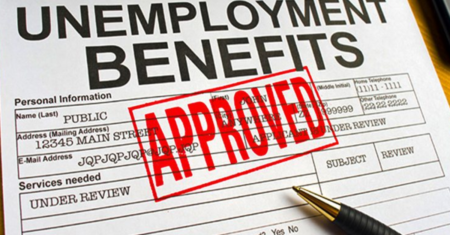
Social Security Disability Insurance (SSDI) is a federal program that provides monthly income support to citizens who are unable to work as a result of a prolonged or disabling medical condition. SSDI is funded by the Social Security taxes that workers pay on their earnings. To qualify for SSDI, you must have a disability that meets the Social Security Administration’s (SSA) definition and criteria, and you must have worked long enough and recently enough to earn enough work credits. Work credits are based on your annual earnings and the number of years you have paid Social Security taxes.
The amount of SSDI benefits you can receive depends on your average lifetime earnings before your disability began. The maximum SSDI benefit for 2022 is estimated at $1,358 per month1. However, the average monthly benefit in 2021 was $1,2772. You may also be eligible for additional benefits if you have a spouse, children, or parents who depend on your income. SSDI benefits are usually adjusted annually for inflation.
Related articles
- How to Choose, Apply and Manage a Car Loan Online
- What Is Credit Management? 3 Ways To Improve Your Credit Management Process
- What Is A Good Credit Score?
- See Here How to Get Your Social Security Declaration
SSDI benefits are not permanent. You will continue to receive them as long as you remain disabled and unable to work. The SSA will periodically review your medical condition and work activity to determine if you still qualify for SSDI. If your condition improves or you earn more than a certain amount from work, your benefits may be reduced or stopped. You may also lose your benefits if you do not cooperate with the SSA’s requests for information or medical exams.
SSDI benefits are not the same as Supplemental Security Income (SSI) benefits. SSI is another federal program that provides cash assistance to people who are aged, blind, or disabled and have limited income and resources. SSI is funded by general tax revenues, not Social Security taxes. To qualify for SSI, you do not need to have any work history or credits, but you must meet the SSA’s definition and criteria for disability, blindness, or age, and you must have less than $2,000 in resources (or $3,000 for a couple) and your monthly income must be below a certain level that varies by state3.
If you think you may be eligible for SSDI or SSI benefits, you can apply online, by phone, or in person at your local Social Security office. You will need to provide some personal information and documents to prove your identity, age, citizenship, income, resources, and disability. You may also need to complete some forms and answer some questions about your work history and medical condition. The SSA will review your application and notify you of their decision. If you are approved, you will start receiving your monthly benefits. If you are denied, you can appeal the decision within 60 days.
Social Security Disability Insurance (SSDI) benefits are available to people who are unable to work due to a medical condition that has lasted or is expected to last for at least 12 months or result in death. To be eligible for SSDI benefits, you must meet certain requirements, including:
- You must be 18 years of age or older.
- You must have worked in jobs covered by Social Security for a certain number of years (called “credits”). The number of credits you need depends on your age when you become disabled.
- You must have a medical condition that meets Social Security’s definition of disability.
- Your disability must be expected to last for at least 12 months or result in death.
The amount of your SSDI benefits will depend on your average earnings over the past 10 years. You can receive SSDI benefits for as long as you are disabled. SSDI benefits are taxable income. You may also be eligible for other benefits, such as Medicare, Medicaid, and food stamps.
If you are considering applying for SSDI benefits, it is important to get help from an experienced attorney. An attorney can help you understand the eligibility requirements, gather the necessary documentation, and file your application. They can also represent you at any appeals hearings.
Here are some resources that can help you learn more about SSDI benefits:
- The Social Security Administration website: https://www.ssa.gov/benefits/disability/
- The National Organization of Social Security Claimants’ Representatives website: https://www.nosscr.org/
- The Social Security Disability Help Center website: https://www.disabilityhelpcenter.org/
I hope this information is helpful. Please let me know if you have any other questions.
Here are some additional things to know about SSDI benefits:
- The application process can be long and complicated.
- You may be denied benefits at first. If you are denied, you can appeal the decision.
- You may need to provide medical records and other documentation to support your claim.
- You may need to have a medical examination.
The Social Security Administration (SSA) has a number of programs that can help people with disabilities. These programs include:
- SSDI: Social Security Disability Insurance
- SSI: Supplemental Security Income
- Medicare: Health insurance for people with disabilities
- Medicaid: Health insurance for low-income people
- Ticket to Work: Program that helps people with disabilities return to work
If you are disabled, it is important to know about the different programs that are available to help you. You can get more information about these programs from the SSA website or by calling the SSA at 1-800-772-1213.
If you meet all of these requirements, you may be eligible for SSDI benefits. However, it is important to note that the decision of whether or not you are eligible is made by Social Security. And the process of applying for SSDI benefits can be long and complicated. So it is important to get help from an experienced attorney if you are considering applying for benefits.
About the Author






0 Comments